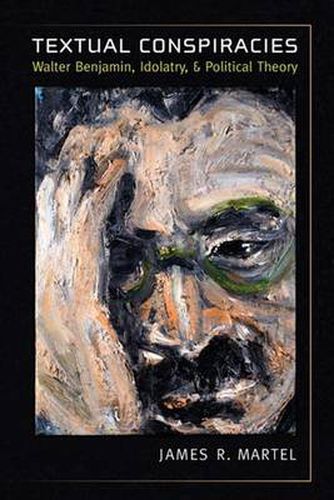Readings Newsletter
Become a Readings Member to make your shopping experience even easier.
Sign in or sign up for free!
You’re not far away from qualifying for FREE standard shipping within Australia
You’ve qualified for FREE standard shipping within Australia
The cart is loading…






In Textual Conspiracies, James R. Martel applies the literary, theological, and philosophical insights of Walter Benjamin to the question of politics and the predicament of the contemporary left. Through the lens of Benjamin’s theories, as influenced by Kafka, of the fetishisation of political symbols and signs, Martel looks at the ways in which various political and literary texts speak to each other across the gulf of time and space, thereby creating a textual conspiracy that destabilises grand narratives of power and authority and makes the narratives of alternative political communities more apparent.
However, in keeping with Benjamin’s insistence that even he is complicit with the fetishism that he battles, Martel decentralises Benjamin’s position as the key theorist for this conspiracy and contextualises Benjamin in what he calls a constellation of pairs of thinkers and writers throughout history, including Alexis de Tocqueville and Edgar Allen Poe, Hannah Arendt and Federico Garcia Lorca, and Frantz Fanon and Assia Djebar.
$9.00 standard shipping within Australia
FREE standard shipping within Australia for orders over $100.00
Express & International shipping calculated at checkout
In Textual Conspiracies, James R. Martel applies the literary, theological, and philosophical insights of Walter Benjamin to the question of politics and the predicament of the contemporary left. Through the lens of Benjamin’s theories, as influenced by Kafka, of the fetishisation of political symbols and signs, Martel looks at the ways in which various political and literary texts speak to each other across the gulf of time and space, thereby creating a textual conspiracy that destabilises grand narratives of power and authority and makes the narratives of alternative political communities more apparent.
However, in keeping with Benjamin’s insistence that even he is complicit with the fetishism that he battles, Martel decentralises Benjamin’s position as the key theorist for this conspiracy and contextualises Benjamin in what he calls a constellation of pairs of thinkers and writers throughout history, including Alexis de Tocqueville and Edgar Allen Poe, Hannah Arendt and Federico Garcia Lorca, and Frantz Fanon and Assia Djebar.